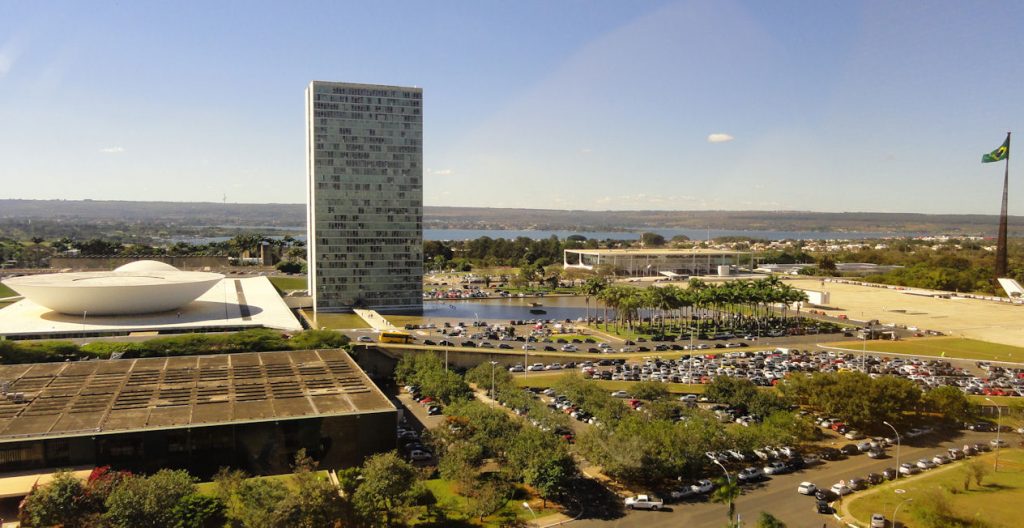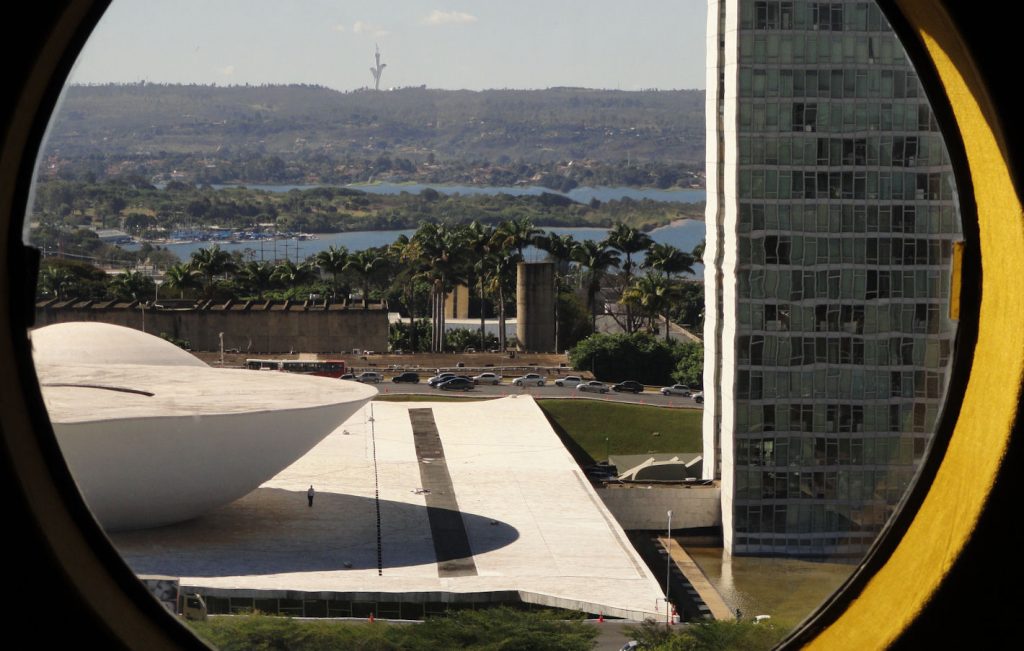
I spoke to a senior analyst at the Camara dos Deputados Office of Legislative Counsel. He is a former IVLP and subsequently did graduate work at the University of California at Berkeley, so he knows something both about Brazil and the U.S. His organization is much like a CRS, but maybe a bit more hand on in helping with the drafting of legislation. It does general studies of important subjects, as well as supports the legislators with specific research. We talked about the Brazilian government and how it is similar and different from ours.
The many similarities to the U.S. system is not an accident. The new Brazilian republic used the U.S. as a model. Rui Barbosa, the chief architect of the Constitution of 1891 (Brazil’s first republican constitution), looked toward the U.S., specifically rejecting French style constitutional thinking then lingering in South America. Brazil was once called the United States of Brazil. We see many familiar forms. Brazil has a President elected to a four year term by popular vote. There is nothing like our Electoral College. There is a Senate (Brazilian senators are elected to eight year terms with three from each of the 26 states and three from the Federal District for a total of 81), a House of Representatives (513 deputies, who are elected by proportional representation to serve four-year terms) and a Supreme Court (eleven members appointed by the President and confirmed by the Senate). Like the U.S., Brazil is a federation of states, although the states do not have all the same sovereign rights as those in the U.S. An important difference in origin is that in the U.S. the states created the Federal government while in Brazil the Federal government created the states.

The Brazilian system gives more power to the president than ours does. The executive originates the budget. The congress authorizes spending, but in practice does not resist presidential initiatives. The president also has significant power to issue what we would call executive orders. These have the power of law unless the congress negates them within two months. More and more laws are being promulgated in this way. The president also has significant power to move resources. This makes congress more dependent on presidential favor.

You can tell where power concentrates by the number of deputies and senators who leave the congress to run for local office. Rather than working up toward the Federal level, many politicians look at the job in congress as a stepping stone to becoming a mayor or governor in their home states. I don’t recall this happening often in the U.S.
Osmar also told me that the courts are moving in the unexpected direction of essentially making law by means of their decisions. This happens in the U.S., but it is more surprising in Brazil, which is a primarily a code law country w/o our strong common law traditions of precedents.

Of course, Brazil and the U.S. are different in many ways, given the differences in our history and cultures, but having in common being very large countries with lots of diversity tends to pull us in many of the same directions. Both the U.S. and Brazil are countries of aspiration, i.e. people can a long way away and still remain in the same country. This means that they can aspire to better their lives by moving to follow opportunities. We talked about changes in the last twenty-five years with migration of people from Rio Grande do Sul and Parana as a kind of case study. These people followed the agricultural frontier, trading relatively small holdings in their home states for much bigger places in states like Mato Grosso, Rondonia or Pará. Cities such as Santarém in Pará are heavily Gaucho and the prospering farms in western Bahia are often owned by former residents of the South. They brought their skills and habits with them, but also quickly blended in with Brazilians already there. In our country you might see this kind of pattern with Californians moving to other states of the west. I remember people in eastern Washington State complaining that they were being “Californicated.” I would not want to take the parallel too far, but it does exist.
Anyway, I despair of really getting to know Brazil. It is way too big and complex and by the time I learn something, it is likely to have changed. When I talk to Brazilians about comparisons of my country with theirs, I often realize how much about my own country I just don’t know. I suppose I should just enjoy the quest of trying to find out.
